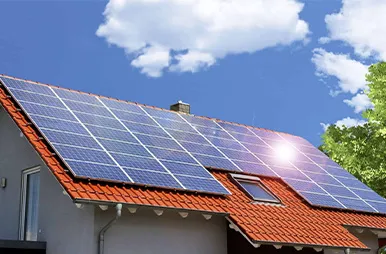Exploring the Benefits and Innovations of Solar Power Plants for Sustainable Energy Solutions
The Future of Solar Power Plants
As the world grapples with the pressing challenge of climate change, solar power plants have emerged as a pivotal solution in the quest for sustainable energy. Harnessing the sun’s energy offers a clean, renewable, and abundant source of electricity, making solar energy a crucial player in the global transition towards greener energy.
Solar power plants convert sunlight into electricity through photovoltaic cells or concentrated solar power systems. Photovoltaic solar panels, which are made of semiconductor materials, directly convert sunlight into electricity. In contrast, concentrated solar power systems use mirrors or lenses to focus sunlight onto a small area, producing heat that can be used to generate steam and drive turbines. Both methods demonstrate the versatility and efficiency of solar technology.
One of the greatest advantages of solar power plants is their ability to reduce greenhouse gas emissions. Unlike fossil fuels, solar energy production produces little to no emissions, significantly lowering the carbon footprint of electricity generation. This shift is vital as countries around the globe strive to meet ambitious climate targets set by international agreements such as the Paris Agreement. Furthermore, solar power can help reduce air pollution, contributing to healthier environments and improved public health.
Economically, solar power plants have proven to be increasingly viable. The cost of solar technology has plummeted over the past decade due to advancements in technology and increased production scale. This decline in costs has made solar energy one of the most affordable sources of new electricity generation in many regions. Additionally, investing in solar power creates jobs in manufacturing, installation, and maintenance, bolstering local economies and fostering sustainable job growth.
solar power plant

The decentralized nature of solar power generation further enhances its appeal. Unlike traditional energy sources that often rely on centralized power plants and extensive transmission lines, solar power can be generated at the point of use. Rooftop solar installations allow individual homes and businesses to produce their electricity, which can lead to energy independence and resilience against price fluctuations in fossil fuels. In rural and remote areas, solar power provides an opportunity to access electricity where grid expansion may be impractical or too costly.
However, the growth of solar power plants is not without its challenges. Energy storage remains a critical issue; solar energy generation peaks during the day but may not align with demand, especially during evening hours. Advancements in battery technology and energy storage solutions are crucial to overcoming this hurdle and ensuring a steady and reliable energy supply.
Furthermore, the land-use implications of large-scale solar farms must be considered. While solar power is a renewable source, its infrastructure can compete with agricultural and natural land uses. Balancing land requirements for solar installations with the need to preserve ecosystems and agricultural lands is essential for sustainable development.
To address these challenges, collaboration between governments, industries, and communities is paramount. Public policies that promote solar energy adoption, including tax incentives, rebates, and streamlined permitting processes, can significantly accelerate the transition to solar power. Moreover, investment in research and development is necessary to enhance technologies, improve energy storage solutions, and make solar energy even more efficient and accessible.
In conclusion, solar power plants represent a cornerstone of the future energy landscape. As technology continues to evolve and the world increasingly prioritizes sustainable practices, solar energy stands out as a key contributor to a cleaner, greener, and more sustainable future. Embracing solar power not only addresses the urgent challenges posed by climate change but also fosters economic growth and energy independence, paving the way for a brighter tomorrow.
-
String Solar Inverter: The High-Efficiency Solution for Smart Solar EnergyNewsJul.14,2025
-
Revolutionizing Rooftop Energy with the Power of the Micro Solar InverterNewsJul.14,2025
-
Power Independence with Smart Off Grid Solar Inverter SolutionsNewsJul.14,2025
-
On Grid Solar Inverter: Powering the Future with Smart Grid IntegrationNewsJul.14,2025
-
Monocrystalline Solar Panels: High-Efficiency Power for the Future of Clean EnergyNewsJul.14,2025
-
Bifacial Solar Panel: A Smarter Investment for Next-Generation Energy SystemsNewsJul.14,2025







